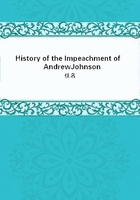
第88章 WAS IT A PARTISAN PROSECUTION?(4)
But the most flagrant case of unfairness to the defendant in this examination of witnesses occurred in the treatment of interrogatory No. 3, put by the prosecution, in their introduction of a letter from the President to General Grant, purporting to enclose letters from different members of the Cabinet in substantiation of the position of the President in the controversy then pending between Gen. Grant and himself. These letters were enclosed with, and specifically referred to and made a part of the President's communication, and were necessary to a correct apprehension of the controversy, from the President's or any other standpoint.
Being so enclosed and referred to in the letter transmitting and enclosing them, they became quite as much a part of the President's communication as his own letter which enclosed them.
Counsel for Defense objected to the introduction of the President's letter without the enclosures, but the objection was not sustained and the letters were not permitted to be introduced, but the letter enclosing and referring to them was.
The vote on the production of the enclosures was, yeas 20, nays 29--twenty-eight of the thirty-eight Republicans present, voting to exclude this essential testimony in the President's behalf, and twenty-seven of the number afterwards voted to convict him of a high misdemeanor in office in removing Mr. Stanton from the War Office, after refusing him the benefit of the testimony of his Constitutional Cabinet advisers in this important matter.
It is possible that under other conditions this proceeding might have been legitimate and proper; but Mr. Johnson was on trial under grave charges, before the highest, and supposably fairest tribunal on earth, and had a right to the benefit of the testimony of his cabinet, in full, and more especially when that testimony was presented in a distorted and garbled shape by his accusers. Moreover, every member of the Court had the right to know what was in those letters, if any part of the correspondence was to be received. But whether or not Mr. Johnson had the right to the testimony in his behalf which it was claimed these enclosures contained, he certainly had the right to resist the introduction of mutilated testimony against him. The purpose of the trial was to ascertain the facts in the case--all the facts bearing on either side. The Court was sitting and the witnesses were called for that purpose, and no other.
This record shows, that in but three instances out of twenty-one, did a majority of the Republicans of the Senate vote to receive testimony offered in the President's behalf--that on one interrogatory there was an equal division--that on seventeen of the twenty-one interrogatories put by the Defense, a majority of the Republicans voted to exclude testimony, in several cases by a two-thirds vote--and that but nine of the twenty-one interrogatories put in behalf of the President were by Republican votes permitted to be answered--also that, as a rule which had very rare exceptions, such interrogatories in behalf of the President as were permitted answer, were so permitted by very close majorities.
It is undoubted that every Republican member of the Senate entered upon that trial in the expectation that the allegations of the Prosecution would be sustained, but it was also expected that a fair, free, full, open investigation of all the charges preferred would be had, and that all the information possible to be obtained bearing upon the case, pro and con, would be admitted to testimony--but that expectation was not realized.
To sum up this feature of the proceeding--the Republican majority of the Senate placed themselves and their party in the attitude of prosecutors in the case--instead of judges sworn to give the President an impartial trial and judgment that their course had the appearance, at least, of a conspiracy to evict the President for purely partisan purposes, regardless of testimony or the facts of the case-that public animosity against Mr. Johnson had been manufactured throughout the North by wild and vicious misrepresentations for partisan effect--that practically the entire Republican Party machinery throughout the country was bent to the work of prosecution. The party cry was "Crucify him!""Convict him anyway, and try him afterwards!" With rare exceptions, the Republican Party of the country, press and people, were a unit in this insensate cry.
They were ready to strike, but not to hear.
There can be but one conclusion from these premises, established by the record of the trial--that the entire proceeding, from its inception in the House of Representatives to its conclusion in the Senate, was a thoroughly partisan prosecution on the part of the majority in both Houses, and that the country was saved from the shameful spectacle, and the dangerous consequences of such a proceeding, by the intervention and self-sacrifice of a few gentlemen who proposed to respect the obligation of their oath, and give Mr. Johnson, so far as in their power, a fair trial and judgment--and not having had such a trial--to give him the benefit of what he claimed he could prove in his own behalf and was not permitted to--and a verdict of "Not Guilty," regardless of consequences to themselves.
What every member of the Court had sworn to do was "impartial justice" to Andrew Johnson, and nothing less. The Counsel on neither side had taken that oath, but the Court had; and its performance of that oath was impossible without possession of all the information relating to and bearing upon the case that it was reasonably possible to obtain. That is the essential ingredient and characteristic of a fair trial.
THAT ESSENTIAL INGREDIENT OF JUDICIAL FAIRNESS WAS NOT SHOWN TOMR. JOHNSON IN THIS CASE BY THE REPUBLICAN MAJORITY OF THESENATE, as the official record of the trial clearly establishes.
It was an ill-disguised and malevolent partisan prosecution.